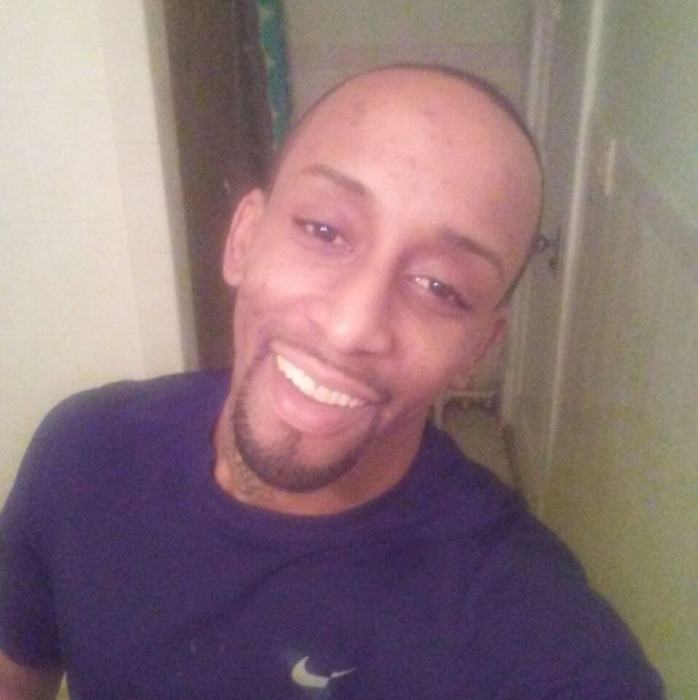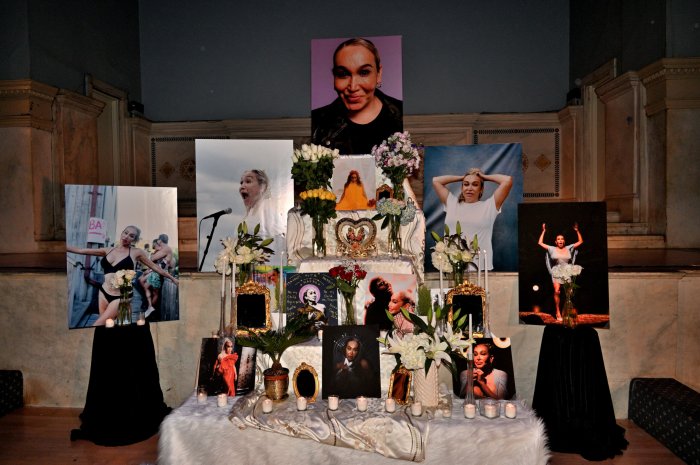The sequence of messages seeking public information drivers saw as they drove through Newark’s Branch Brook Park in July 2010. | BILL DOBBS
A document filed in the federal civil rights lawsuit brought by the family of DeFarra Gaymon, a 48-year-old man who was killed by police during a 2010 public sex sting in Newark’s Branch Brook Park, is raising questions about how hard investigators looked for witnesses to that shooting.
“Even though this is a civil suit and not a criminal case, the public is getting a peek at how well or not this killing was investigated,” said Bill Dobbs, a longtime gay activist who has followed the case closely.
In July 2010, Edward Esposito, a deputy in the Essex County Sheriff’s Office, and his partner had just fought with a man who they arrested for public lewdness. Esposito lost his handcuffs during the fight. He went back into the park to find them and he was approached by Gaymon who “was engaged in a sex act at the time,” according to a 2010 statement from the Essex County Prosecutor’s Office.
Esposito, who is now 30 or 31, attempted to arrest Gaymon, who fled. After a chase, Esposito said, Gaymon threatened to kill him and lunged at him. Esposito shot and killed Gaymon, who was unarmed. In June 2011, a grand jury declined to indict Esposito.
When announcing the grand jury result, the Prosecutor’s Office said in multiple press reports that it had not found any witnesses to the shooting. The grand jury heard only Esposito’s version of the incident.
“If there were witnesses, locating them is crucial because they could have information that would get to the truth of this,” Dobbs said. “A witness could have information that would really tip the scale on this. Right now, they have only one account to rely on.”
In press reports, Christopher W. Kinum, the Gaymon family attorney, criticized the investigation into the shooting.
The document, filed in May of this year, lists 55 records and a CD that were in the prosecutor’s “file pertaining to the investigation of the death of Defarra Gaymon” and that were turned over to the Gaymons’ attorney. Kinum did not respond to calls for this story.
The documents include three reports totaling four pages that were written by other deputies and a five-page “incident summary” from the Sheriff’s Office. Those documents are dated the day of the shooting. A four-page “typed narrative” by Esposito is dated three days after the shooting.
The Prosecutor’s Office produced an 18-page report in three parts that are dated three days, 11 days, and 25 days after the shooting. That report is attributed to a single investigator.
No documents refer to witness statements or interviews with people in the park. There are no copies of flyers seeking witnesses, if such flyers were distributed.
The CD is a statement from a man who may have been arrested in Essex County in September of 2010 for loitering for the purpose of selling drugs, though Gay City News could not confirm that. The Sheriff’s Office referred calls to the County Prosecutor’s Office, which said it will not comment on pending litigation.
The Prosecutor’s Office did place an illuminated sign in the park that sought witnesses. That sign was placed next to a road and it took 18 seconds to cycle through its message, so drivers passing by would be unable to read the entire message.
“I think someone would need to see it couple of times at least before comprehending the message,” Dobbs wrote in an email. “Pedestrians and park-goers would have easier time making sense of it.”
In an email, the Prosecutor’s Office wrote, “This investigation was completed some time ago. A grand jury made up of residents of Essex County voted not to charge Officer Esposito. That concluded our investigation.”
Twenty of the records are Esposito’s arrest reports from public sex stings, and they confirm earlier reporting by Gay City News that three of his 2009 arrests also turned violent. Resisting arrest was charged in another two Esposito public sex arrests that year.
Garden State Equality, New Jersey’s statewide gay lobby, did not respond to calls and emails seeking comment.

































